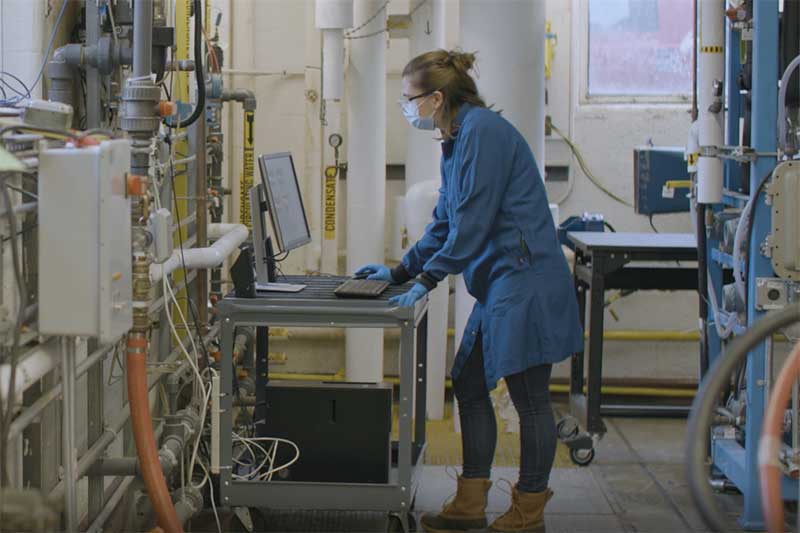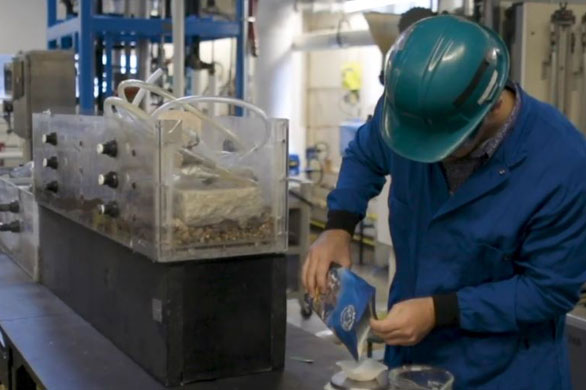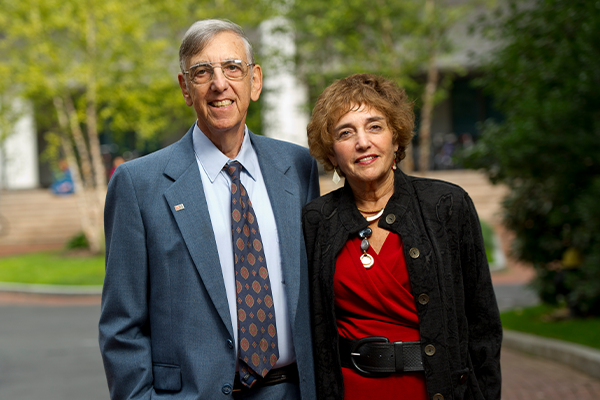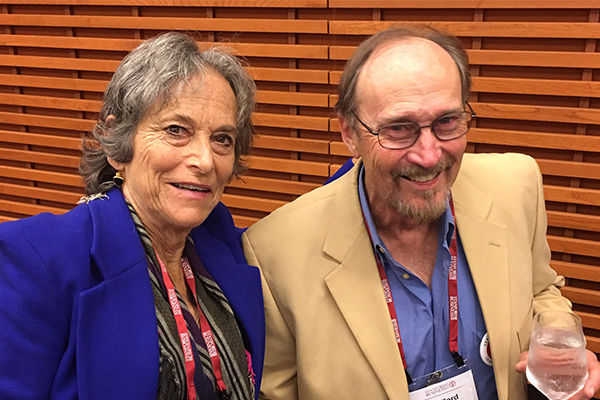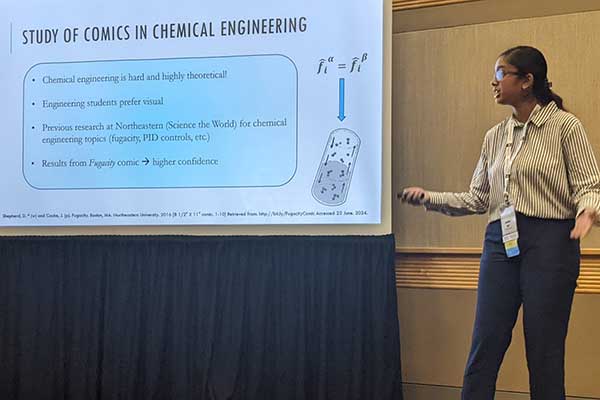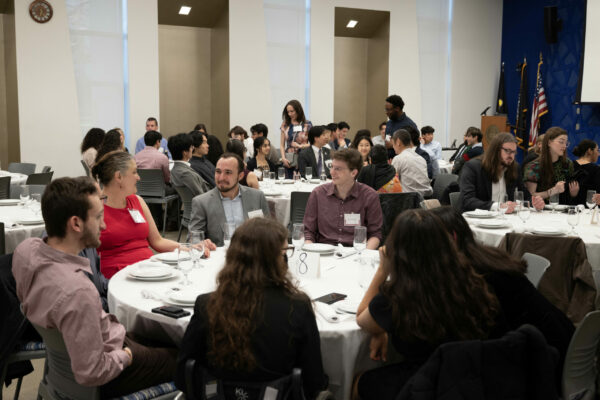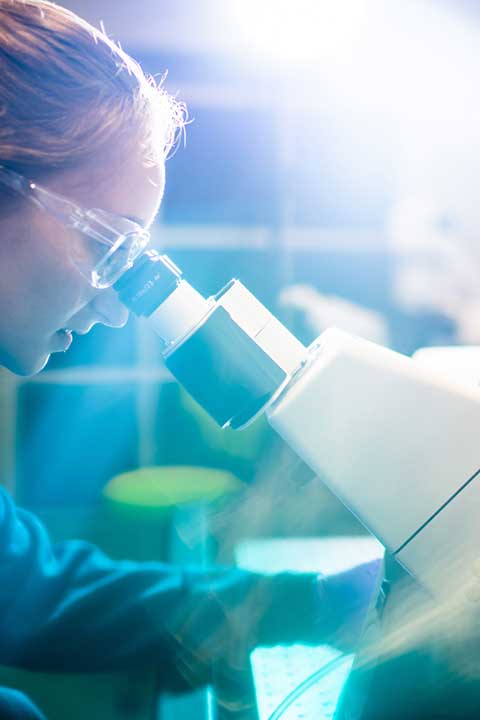
Bachelor of Science in Chemical Engineering
Bachelor of Science in Chemical Engineering
Overview
The chemical engineering program offers students a broad education built on the foundation of fundamentals in science, mathematics, and engineering, which is then applied to a variety of contemporary problems using modern tools such as computational software and computer-aided design. The role of chemical engineering is to develop new products and to design processes while reducing costs, increasing production, and improving the quality and safety of new products.
Innovative Curriculum
The Bachelor of Science (BS) in Chemical Engineering prepares students for an exciting field. Chemical engineers have traditionally been employed in chemical, petrochemical, agricultural chemical, pulp and paper, plastics, cosmetics, and textiles industries and in consulting and design firms. Today, chemical engineers also play an integral role in emerging biological and advanced materials fields, including nanotechnology.
For example, chemical engineers are creating new materials needed for space exploration, alternative energy sources, and faster, self-powered computer chips. In biotechnology and bioengineering, chemical engineers are working to understand human diseases, developing new therapies and drug delivery systems, and producing new medicines through cell culture techniques. Chemical engineers employ nanotechnology to revolutionize sensors, security systems, and medical diagnostics and treatments. In addition to creating important products, chemical engineers are also involved in protecting our environment by exploring ways to reduce acid rain and smog; to recycle and reduce wastes; to develop new sources of environmentally clean energy; and to design inherently safe, efficient, and “green” processes.
BS in Chemical Engineering students have the option of selecting from several minors to complement their degree and personalize their path. Students can select from minors in the department, in other engineering departments, or from across the university.
The Accelerated Master’s Degree PlusOne program allows current undergraduate students to accelerate the attainment of the master’s degree by applying graduate credits taken as an undergraduate toward both the undergraduate and graduate degrees. Current students apply to enroll in the PlusOne program. Students attain their bachelor’s degree followed by a PlusOne year to complete the master’s degree.
Students currently earning a BS in Chemical Engineering can select from the below MS degree PlusOne pathways.
Upon completion, graduates with a BS in Chemical Engineering can move in several career directions. Traditionally, the degree prepares one for practice in the engineering and the control of processes involving chemicals, biotechnology feedstocks, and pharmaceuticals. The degree can also serve as a springboard to advance study in chemical engineering. Nontraditional postgraduate pathways include obtaining a law school degree related to patent law, an MBA, or a medical degree for a career in the health professions.
The broad foundation of a chemical engineering education gives students flexibility to apply their knowledge and follow their interests.
Examples in which Chemical Engineers Play an Important Role
- Advanced Materials Research
- Drug Discovery
- Tissue Engineering
- Molecular Modeling
- Process Safety
- Management
The Bachelor of Science (BS) program in Chemical Engineering is accredited by the Engineering Accreditation Commission of ABET, www.abet.org.
Experiential Learning
Experiential learning is the heart of a Northeastern education, combining rigorous coursework with hands-on experience in the classroom, in the lab, and in the field—locally and abroad. With our signature cooperative education (co-op) program, students typically gain six months of work experience integrated as part of the educational program. Both five-year, three-co-op and four-year, two-co-op program options are available.
Academic Advising
For support with academic questions, contact the academic advisor assigned to this program.
Admissions & Aid
Ready to take the next step? Review Degree Requirements to see courses needed to complete this degree. Then, explore ways to pay for your education. Finally, review Admissions Information to see our deadlines and gather the materials you need to Apply.
Student News
Professional Licensure: If looking for information on obtaining Professional Licensure, visit the Professional Licensure Disclosure Page or contact the Associate Dean for Undergraduate Education, Susan Freeman, at s.freeman@northeastern.edu.
